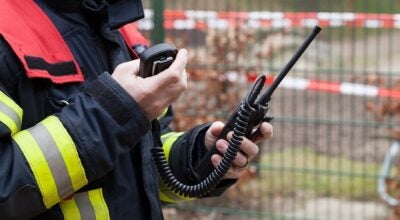Fort Pickett Gets Picked
Published 3:17 pm Tuesday, April 22, 2014
BLACKSTONE — Secretary of State John Kerry made it official.
A new Foreign Affairs Security Training Center (FASTC) for the nation’s diplomatic and government personnel facing dangerous global postings will be located at Fort Pickett.
The estimated cost of the facility may exceed $460 million and would be used to train foreign service personnel to detect surveillance, provide emergency medical care, increase identification skills to recognize improvised explosive devices, participate in firearms training and perform defensive/counterterrorist driving maneuvers, according to the State Department’s website.
The attack on US diplomatic personnel in Benghazi in 2012 illustrates the life and death need for such expertise.
“The Department is 100 percent determined that Fort Pickett is the best site…The coordination with the Defense Department and the Intelligence Community—Fort Pickett is the site,” Kerry said in reply last week to a question from Senator Tim Kaine during a Senate Foreign Relations Committee hearing.
Fort Pickett’s close proximity to the State Department, its Foreign Service Institute, intelligence agencies and military facilities in the nation’s capital raised it above all other competing alternatives, according to last week’s announcement.
The Blackstone site’s biggest competition was the Federal Law Enforcement Training Center in Glynco, Georgia, which is not in the vicinity of the nation’s capital.
The selection of Fort Pickett produced the rare spectacle of Democratic Senators Kaine and Mark Warner and GOP Congressmen Robert Hurt and Randy Forbes raising their voices as one, the four Virginians issuing a joint press statement on Thursday afternoon applauding the announcement.
Each stressed the facility’s dual benefits of enhancing the security of US diplomatic personnel abroad while providing economic benefits locally.
Senator Warner said the facility will “play an important role in the protection of American diplomatic personnel, and I am very pleased we were able to make a winning case for the selection of Fort Pickett.”
The former Virginia governor predicted the training center will “generate new economic activity in Virginia while also helping the State Department improve its training efficiencies while holding down costs.”
Kaine, who also called the governor’s mansion home, noted “Our diplomats, security personnel and their families serve in some of the most dangerous places in the world, and I think everyone can agree they deserve the best security training possible. Fort Pickett provides that venue. The local community in Virginia is ready to support this project and I am happy the Administration is moving forward with it.”
Fifth District Congressman Hurt said “the safety and security of our foreign service personnel is vitally important and I applaud the decision to utilize the resources that Fort Pickett and the surrounding areas have to offer. We also look forward to the potential job opportunities and investment association with this decision for the people of Southside Virginia.”
The State Department’s website notes that diplomatic security training is currently conducted at a number of “diffuse, leased and contracted facilities nationwide. A May 2008 report to Congress identified the need for a consolidated facility to improve training efficiency, decrease operating costs, and provide priority access to training venues which meet current facility standards.”
The Department spent several years reviewing more than 70 properties before zeroing in on Fort Pickett, where environmental studies have been undertaken for the past two years, along with land use agreements and securing community support.
The FASTC is expected to utilize over 1,500 acres and one of the impacts already absorbed is the relocation of Madeline’s House, which had been located on that portion of the base’s acreage thanks to the largesse of Nottoway County, which had not charged the domestic and sexual abuse shelter rent.
The foreign service security training facility is expected to attract thousands of individuals for training each year.





